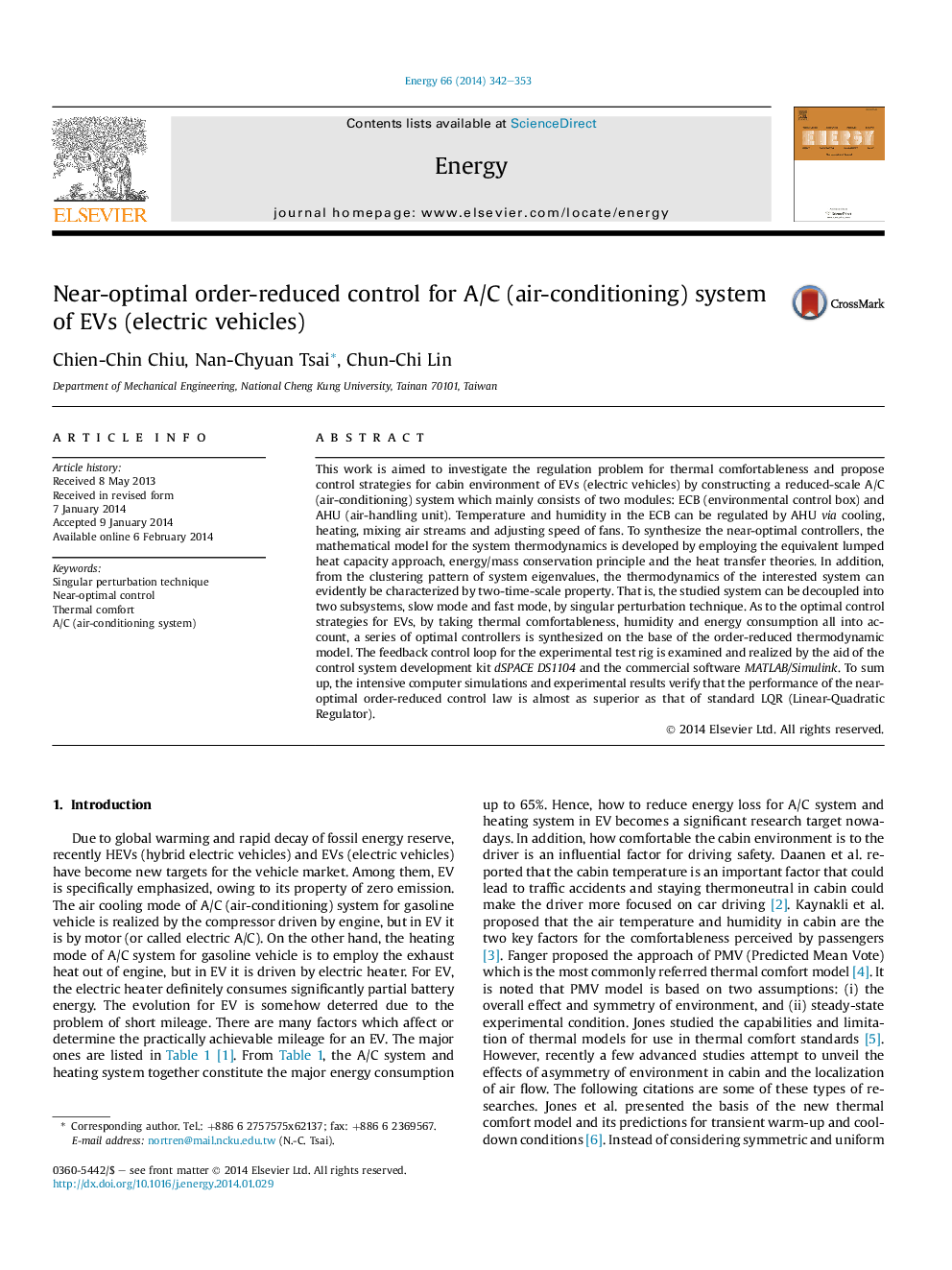| Article ID | Journal | Published Year | Pages | File Type |
|---|---|---|---|---|
| 8078404 | Energy | 2014 | 12 Pages |
Abstract
This work is aimed to investigate the regulation problem for thermal comfortableness and propose control strategies for cabin environment of EVs (electric vehicles) by constructing a reduced-scale A/C (air-conditioning) system which mainly consists of two modules: ECB (environmental control box) and AHU (air-handling unit). Temperature and humidity in the ECB can be regulated by AHU via cooling, heating, mixing air streams and adjusting speed of fans. To synthesize the near-optimal controllers, the mathematical model for the system thermodynamics is developed by employing the equivalent lumped heat capacity approach, energy/mass conservation principle and the heat transfer theories. In addition, from the clustering pattern of system eigenvalues, the thermodynamics of the interested system can evidently be characterized by two-time-scale property. That is, the studied system can be decoupled into two subsystems, slow mode and fast mode, by singular perturbation technique. As to the optimal control strategies for EVs, by taking thermal comfortableness, humidity and energy consumption all into account, a series of optimal controllers is synthesized on the base of the order-reduced thermodynamic model. The feedback control loop for the experimental test rig is examined and realized by the aid of the control system development kit dSPACE DS1104 and the commercial software MATLAB/Simulink. To sum up, the intensive computer simulations and experimental results verify that the performance of the near-optimal order-reduced control law is almost as superior as that of standard LQR (Linear-Quadratic Regulator).
Related Topics
Physical Sciences and Engineering
Energy
Energy (General)
Authors
Chien-Chin Chiu, Nan-Chyuan Tsai, Chun-Chi Lin,
